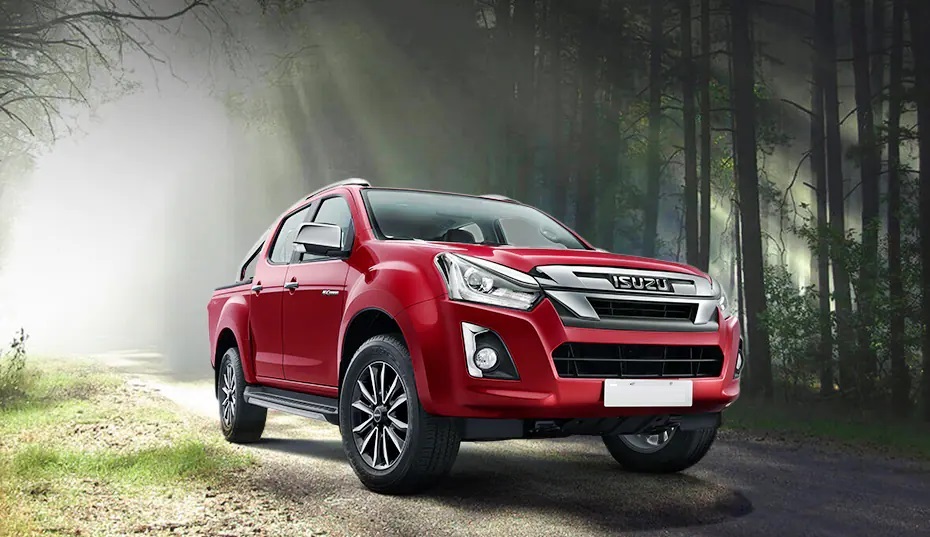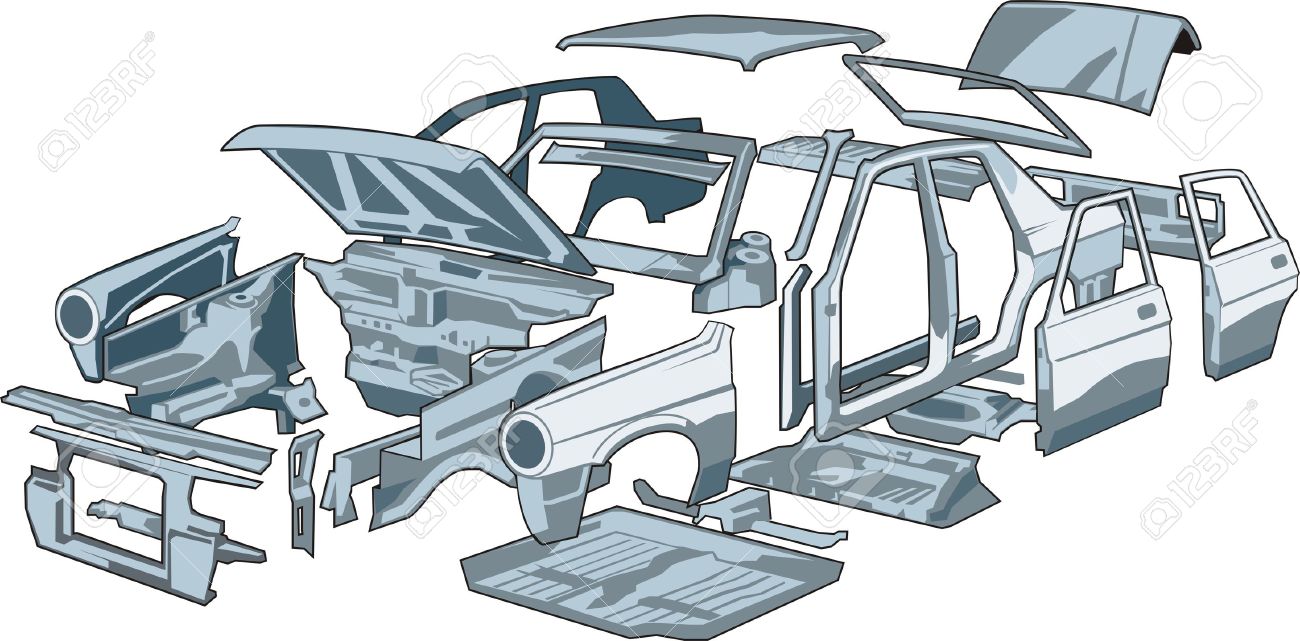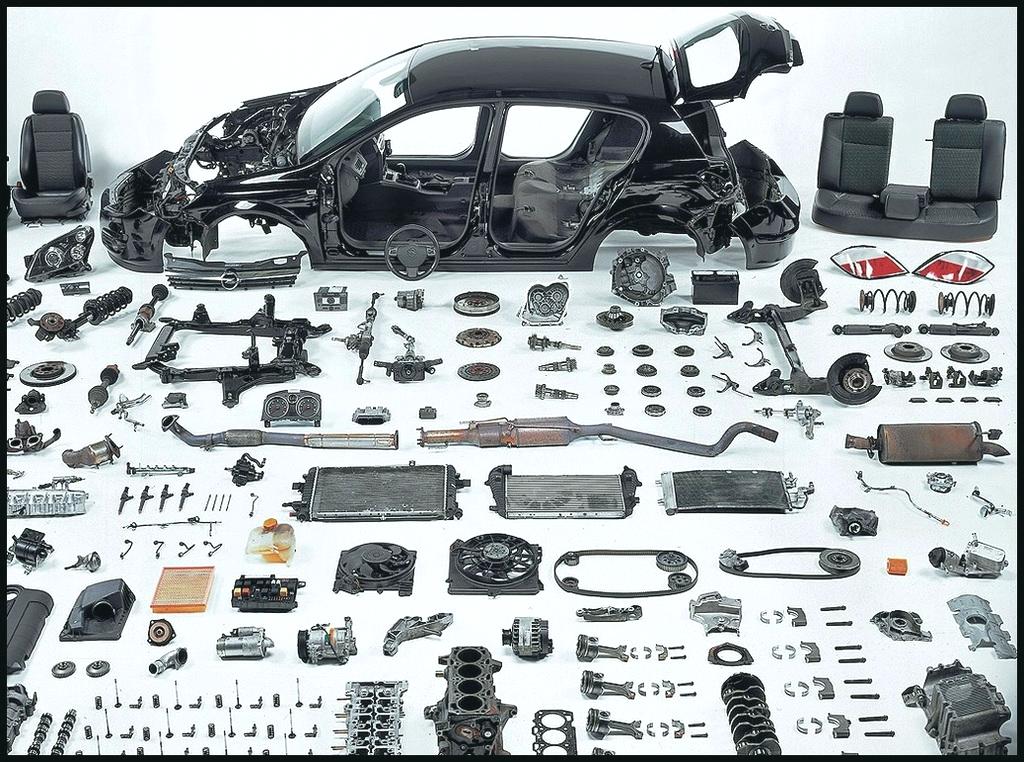
1. Understanding the Importance of Regular RV Maintenance
The Benefits of Regular RV Maintenance
Regular RV maintenance is crucial to ensure the longevity and optimal performance of your recreational vehicle. By regularly servicing your RV, you can identify and address minor issues before they become major problems, saving you time, money, and stress in the long run. Some benefits of regular RV maintenance include:
- Improved Safety: Regular maintenance helps in identifying and fixing potential safety hazards, such as worn-out tires, malfunctioning brakes, or faulty electrical systems. This ensures a safe and worry-free travel experience for you and your passengers.
- Enhanced Performance: Proper maintenance improves the overall performance of your RV. Regularly checking and adjusting tire pressure, inspecting the engine, and maintaining fluid levels can optimize fuel efficiency, engine power, and overall handling.
- Extended Lifespan: Just like any other vehicle, an RV is an investment. By taking care of your RV with regular maintenance, you can significantly prolong its lifespan and preserve its resale value.
- Preventive Measures: Regular inspections allow you to identify potential issues early on, preventing them from escalating into costly repairs. Catching problems like roof leaks, plumbing issues, or appliance malfunctions early can save you from unexpected breakdowns while on the road.
Common Issues: How Neglecting Maintenance Can Lead to Costly Repairs
Failure to prioritize regular RV maintenance can lead to a host of problems that can quickly escalate into costly repairs. Some common issues resulting from neglecting maintenance include:
- Water Damage: Over time, small cracks or gaps in the RV’s roof or windows can lead to water leaks. Water damage can rot the internal structure, cause mold and mildew growth, and result in significant repair costs.
- Battery Failure: Neglecting to maintain and charge your RV’s batteries regularly can lead to premature failure, leaving you without power when you need it the most.
- Tire Issues: Failure to check tire pressure, rotation, and alignment can result in uneven wear and tear or blowouts, posing a significant safety risk on the road.
- Appliance Malfunctions: Refrigerators, air conditioners, water heaters, and other appliances in your RV require regular maintenance to ensure optimal functionality. Ignoring these maintenance needs can lead to breakdowns or costly replacements.
- Brake Problems: Neglecting to inspect and maintain your RV’s brakes can compromise your ability to stop safely, leading to accidents and expensive repairs.
The Top RV Maintenance Checklist Every Owner Should Follow
To keep your RV in top shape, it’s essential to follow a comprehensive maintenance checklist. While the specific requirements may vary depending on your RV’s make, model, and age, here are some basic maintenance tasks that every RV owner should consider:
- Inspecting the Exterior: Regularly check the RV’s roof, windows, and doors for any signs of damage, cracks, or leaks. Clean the exterior regularly to prevent dirt and grime buildup.
- Checking the Tires: Inspect tire pressure, tread depth, and signs of wear and tear. Rotate the tires regularly and ensure proper alignment for safe and efficient travel.
- Monitoring Fluid Levels: Regularly check and change the engine oil, transmission fluid, coolant, brake fluid, and power steering fluid as per the manufacturer’s recommendations.
- Testing the Battery: Check the battery’s charge level and ensure proper connections. Clean the battery terminals and consider using a battery tender or conditioner for optimal performance.
- Inspecting the Brakes: Regularly check the brake pads, calipers, and brake lines for wear and tear. Ensure the braking system is functioning correctly for safe stopping.
- Servicing the Appliances: Clean and inspect the RV’s appliances, including the refrigerator, air conditioner, water heater, and stove. Follow the manufacturer’s instructions for maintenance and use.
- Checking the Plumbing System: Inspect for leaks in the pipes, faucets, and water tanks. Flush and sanitize the water system regularly to prevent bacteria growth.
- Testing the Electrical System: Check all interior and exterior lights, outlets, and switches for proper operation. Test the RV’s battery charging system and monitor the power usage.
- Inspecting the Interior: Regularly clean and inspect the interior of your RV for any signs of damage, mold, or pests. Keep the living area well-maintained and organized for a comfortable experience.
2. DIY RV Service: Tips and Tricks for the Handy Owner
Getting Started: Must-Have Tools for DIY RV Service
Performing some RV maintenance tasks yourself can save you money and give you a sense of satisfaction. However, it’s essential to have the right tools for the job. Here are some must-have tools for DIY RV service:
- Basic Tool Kit: A basic tool kit should include screwdrivers, pliers, wrenches, socket sets, and a utility knife.
- Socket and Ratchet Set: A socket and ratchet set is necessary for various tasks, such as removing and tightening nuts and bolts.
- Tire Pressure Gauge: Keeping the tires properly inflated is crucial for safe and efficient travels. A digital tire pressure gauge allows you to monitor and adjust tire pressure effectively.
- Multimeter: A multimeter helps in diagnosing electrical issues and testing for continuity, voltage, and resistance.
- RV-Specific Manuals: Invest in RV-specific repair and maintenance manuals to guide you through various DIY tasks specific to your RV’s make and model.
- Lubricants and Sealants: Keep a supply of lubricants, such as silicone spray and graphite powder, along with sealants like silicone caulk for various maintenance needs.
Basic RV Service Tasks You Can Do Yourself
While some RV maintenance tasks are best left to professionals, there are several basic tasks you can do yourself. Here are a few examples:
- Changing Filters: Regularly changing air filters, oil filters, and fuel filters can improve the performance and efficiency of your RV’s engine.
- Replacing Light Bulbs: Easily replace burnt-out light bulbs in your RV’s interior and exterior fixtures to maintain proper lighting.
- Inspecting and Sealing Windows: Regularly check for cracks or gaps in your RV’s windows and apply sealant as needed to prevent water leaks.
- Cleaning and Lubricating Slide-Outs: Clean and lubricate the slide-out mechanism to ensure smooth operation and prevent damage.
- Checking and Replacing Fuses: Regularly inspect the fuses in your RV’s electrical system and replace any blown fuses for uninterrupted power supply.
- Sealing Roof Seams: Inspect the roof seams and apply RV-specific sealant to prevent water leaks and damage.
Pro Tips to Ensure Success with DIY RV Service
While tackling DIY RV service can be gratifying, it’s crucial to approach it with the right knowledge and precautions. Here are some pro tips to ensure success:
- Research and Educate Yourself: Before attempting any DIY maintenance task, thoroughly research the process, watch tutorial videos, and consult RV forums to gather insights and tips from experienced RV owners.
- Follow Manufacturer Guidelines: Always refer to your RV’s manufacturer guidelines and manuals for maintenance tasks, specifications, and safety precautions.
- Use Proper Safety Equipment: Wear appropriate safety gear such as gloves, safety glasses, and protective clothing when working on your RV. Additionally, ensure you have proper support, such as jack stands, when working underneath the vehicle.
- Keep a Record: Maintain a detailed record of the maintenance tasks you have performed, including dates, parts replaced, and any additional notes. This will help you track the history of your RV’s maintenance and identify recurring issues.
- Know Your Limits: While DIY maintenance can save money, it’s essential to recognize your limitations. If a task is beyond your comfort level or requires specialized tools or expertise, it’s best to seek professional assistance.
3. Choosing the Right RV Service Center: What to Look For
Qualities of a Reliable RV Service Center
When it comes to more complex RV maintenance and repairs, it’s essential to find a reliable RV service center. Here are some qualities to look for:
- Experience and Expertise: Look for a service center with experienced technicians who specialize in RV repairs and are familiar with various RV brands and models.
- Professional Certifications: Opt for a service center whose technicians hold certifications from organizations like the Recreation Vehicle Industry Association (RVIA) or the National RV Training Academy (NRVTA).
- Positive Customer Reviews: Check online reviews and testimonials from previous customers to gauge the service center’s reputation, quality of work, and customer satisfaction.
- Range of Services: Choose a service center that offers a comprehensive range of services, including routine maintenance, repairs, installations, and warranty work.
- Availability of Parts: Ensure that the service center has access to a wide range of RV parts and components to facilitate efficient repairs and replacements.
- Transparent Pricing: Look for a service center that provides upfront and transparent pricing, including labor costs and any additional charges for parts or accessories.
- Good Communication and Customer Service: A reliable service center should have excellent communication and customer service skills, keeping you informed throughout the repair process and addressing any concerns or questions you may have.
Cost Considerations: Finding Quality Service at an Affordable Price
The cost of RV service can vary depending on the type of maintenance or repair needed, the location, and the service center itself. While it’s important to find quality service, it’s also essential to consider your budget. Here are some cost considerations:
- Research and Compare: Take the time to research and compare prices from different service centers to get an idea of the prevailing market rates for various services.
- Ask for Quotes: Contact multiple service centers and request detailed quotes for the specific services you require. This will help you compare prices and understand any additional charges.
- Consider Warranty Coverage: If your RV is still under warranty, check if the repairs or maintenance tasks you need are covered. If so, take advantage of the warranty coverage to minimize costs.
- Ask About Discounts: Inquire about any available discounts or package deals that the service center may offer. Some centers may have seasonal promotions or loyalty programs.
- Balance Quality and Cost: While it may be tempting to choose the lowest-priced option, prioritize quality and reputation over cost. Saving money upfront may lead to additional expenses if the service is subpar.
Reviews and Testimonials: How to Find the Best RV Service Center Near You
Finding the best RV service center near you can be daunting, but online reviews and testimonials can provide valuable insights. Here’s how to find the right service center:
- Check Online Directories: Utilize online directories that specialize in RV service center listings. These directories often provide customer reviews, ratings, and contact information.
- Read Customer Reviews: Pay attention to customer reviews on platforms like Google, Yelp, or the service center’s website. Look for consistent positive feedback and specific mentions of excellent service.
- Ask for Recommendations: Seek recommendations from fellow RV owners, friends, or online RV communities. Their firsthand experiences can help you narrow down your options.
- Inquire About Certifications: Look for service centers that have certifications or partnerships with reputable RV industry organizations. These certifications can indicate a higher level of expertise and professionalism.
- Visit the Facility: If possible, visit the service center in person to get a sense of their capabilities, cleanliness, and overall organizational structure. This can give you confidence in their ability to handle your RV.
4. RV Service FAQs: Answers to Common Questions
What Is the Recommended RV Service Schedule?
The recommended RV service schedule can vary depending on factors such as the RV’s age, usage frequency, and manufacturer guidelines. As a general guideline, it’s recommended to have your RV serviced annually or every 12,000 miles. However, specific maintenance tasks, such as oil changes or tire rotations, may have different intervals. Refer to your RV’s owner’s manual for the manufacturer’s recommended service schedule or consult with a trusted RV service professional for personalized guidance.
How Much Does RV Service Typically Cost?
The cost of RV service can vary depending on the type of service, location, and service center. Routine maintenance tasks, such as oil changes or tire rotations, typically range from $100 to $300. However, more extensive repairs or complex maintenance tasks can cost several hundred dollars or more. Factors such as the RV’s size, age, and the extent of the repair needed can impact the final cost. It’s important to obtain detailed quotes from reputable service centers to get an accurate estimate based on your specific requirements.
What Are the Signs That My RV Needs Service?
Knowing when your RV needs service is crucial to prevent major issues and costly repairs. Watch out for the following signs that indicate your RV needs immediate attention:
- Unusual Noises or Vibrations: If you notice strange noises or vibrations while driving or operating your RV, it could indicate a mechanical issue that needs to be addressed.
- Decreased Performance: If you experience a decrease in power, acceleration, or fuel efficiency, it may signal an underlying problem with the engine, fuel system, or other components.
- Fluid Leaks: Any fluid leaks, such as oil, coolant, or transmission fluid, should be addressed promptly, as they can lead to serious damage if left unattended.
- Electrical Problems: If you’re experiencing electrical issues such as malfunctioning lights, non-responsive appliances, or frequent blown fuses, it’s advisable to have the electrical system inspected by a professional.
- Uneven Tire Wear: Uneven wear patterns on your RV’s tires can indicate alignment or suspension problems. It’s essential to address these issues to ensure safe handling and prevent premature tire failure.
- Water Damage or Leaks: Any signs of water damage, such as stains, soft spots, or musty odors inside the RV, should be investigated and repaired to prevent further deterioration and mold growth.
- Propane System Malfunctions: If you’re experiencing issues with your RV’s propane system, such as difficulty lighting appliances or irregular flame patterns, it’s crucial to have it inspected by a qualified technician.
By understanding the importance of regular RV maintenance, learning essential DIY RV service tips, choosing the right service center, and knowing the answers to common questions, you can ensure your RV remains in excellent condition for all your adventures. Whether you opt for DIY maintenance or seek professional help, prioritizing regular maintenance will provide peace of mind and extend the lifespan of your beloved home on wheels.
FAQ
Question: What is the recommended RV service schedule?
Answer: The recommended RV service schedule can vary depending on factors such as the RV’s age, usage frequency, and manufacturer guidelines. As a general guideline, it’s recommended to have your RV serviced annually or every 12,000 miles. However, specific maintenance tasks, such as oil changes or tire rotations, may have different intervals. Refer to your RV’s owner’s manual for the manufacturer’s recommended service schedule or consult with a trusted RV service professional for personalized guidance.
Question: How much does RV service typically cost?
Answer: The cost of RV service can vary depending on the type of service, location, and service center. Routine maintenance tasks, such as oil changes or tire rotations, typically range from $100 to $300. However, more extensive repairs or complex maintenance tasks can cost several hundred dollars or more. Factors such as the RV’s size, age, and the extent of the repair needed can impact the final cost. It’s important to obtain detailed quotes from reputable service centers to get an accurate estimate based on your specific requirements.
Question: What are the signs that my RV needs service?
Answer: Knowing when your RV needs service is crucial to prevent major issues and costly repairs. Watch out for the following signs that indicate your RV needs immediate attention:
- Unusual Noises or Vibrations: If you notice strange noises or vibrations while driving or operating your RV, it could indicate a mechanical issue that needs to be addressed.
- Decreased Performance: If you experience a decrease in power, acceleration, or fuel efficiency, it may signal an underlying problem with the engine, fuel system, or other components.
- Fluid Leaks: Any fluid leaks, such as oil, coolant, or transmission fluid, should be addressed promptly, as they can lead to serious damage if left unattended.
- Electrical Problems: If you’re experiencing electrical issues such as malfunctioning lights, non-responsive appliances, or frequent blown fuses, it’s advisable to have the electrical system inspected by a professional.
- Uneven Tire Wear: Uneven wear patterns on your RV’s tires can indicate alignment or suspension problems. It’s essential to address these issues to ensure safe handling and prevent premature tire failure.
- Water Damage or Leaks: Any signs of water damage, such as stains, soft spots, or musty odors inside the RV, should be investigated and repaired to prevent further deterioration and mold growth.
- Propane System Malfunctions: If you’re experiencing issues with your RV’s propane system, such as difficulty lighting appliances or irregular flame patterns, it’s crucial to have it inspected by a qualified technician.
Useful Resources
- https://rvshare.com/
- https://www.campingworld.com/
- https://www.rvda.org/
- https://www.rvrepairclub.com/
- https://www.rvforum.net/
- https://www.rvda.ca/
- https://www.motorhome.com/
- https://www.rvtrader.com/











